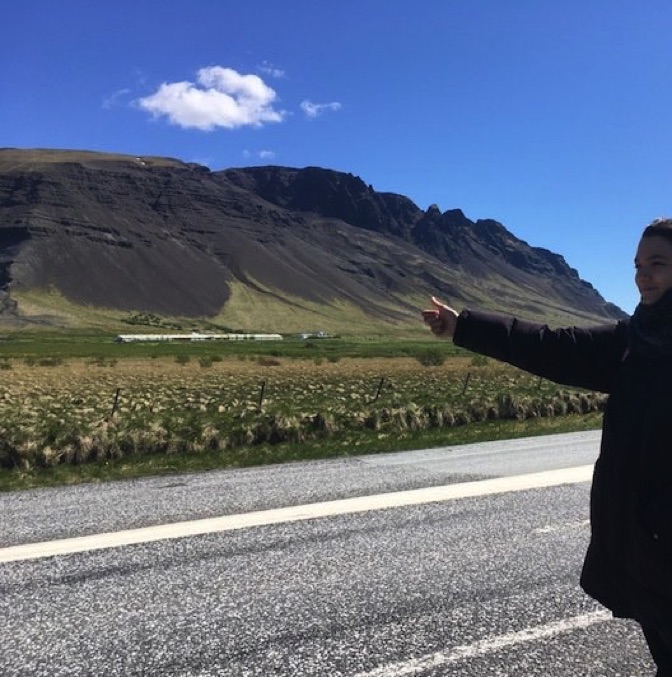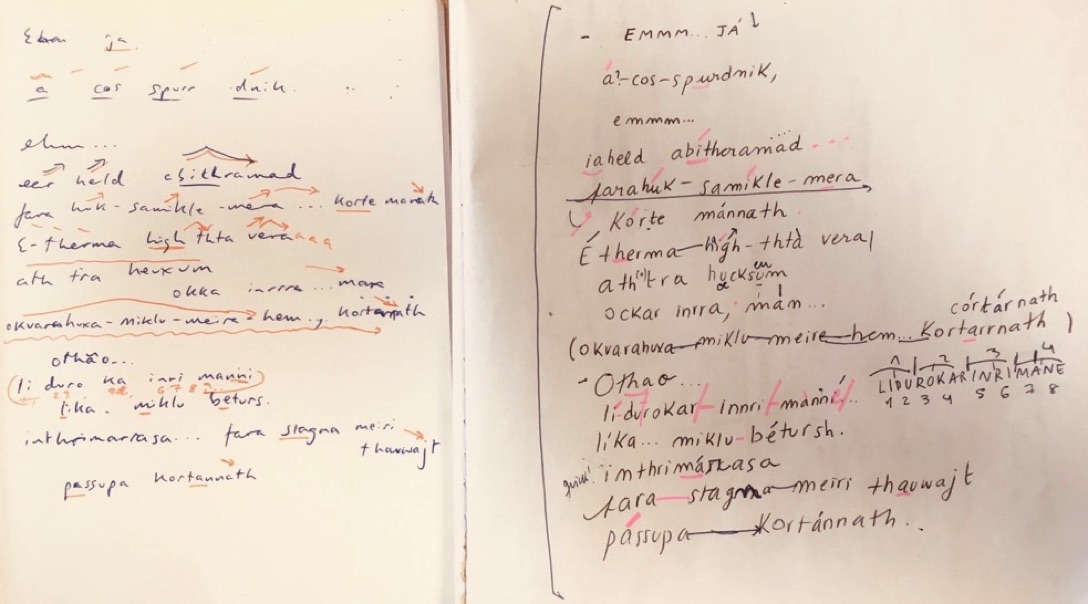Mouth Piece
Mund-Stück



Above, hitching in Iceland
Right, by Mladen Dolar; a key reference
Below, an example of transcription / notation for the learning of an Icelandic utterance
Ant and Rita also offer a workshop based on the concept and processes driving thier performance Mouth Piece / Mund-Stück. So far this has been done in Nîmes, France (Ecole des Beaux Arts) and at the Iceland Art Academy, Reykjavík.
Ideally spread over 4-5 days, the workshop begins with a fragmented ‘seminar’ comprising a selection of video, text, audio and photography (from a wide variety of sources eg. philosophy, psychology, literature, pop / drag, documentary, rumours, artworks…) exploring some key notions to do with voice and language, knowing vs. not-knowing, copying and ‘channeling’, immigration, assimilation and the building of reciprocal trust between strangers.
A&R then introduce their performance, performing the introduction and a short excerpt of the German main section. Following discussion, the group then splits into pairs and goes out hitch-hiking: short distances ‘out of town’. (If for any reason hitching is not possible, they simply approach people in the street). They follow the same process as A&R, introducing themselves as wanting to learn the local language, and needing to record the answers in order to learn it by heart. A&R also hitch-hike and pick up text. Following this, everyone regroups and shares stories of what happened, and their recordings. A&R then share their strategies of transcription, notation and various tips to do with listening, rehearsing and learning. The pairs each learn and practice the text they’ve learnt. The different pairs’ results are compiled into a short performance, which A&R then help the participants to play with (looping sections, emphasising musical aspects, different voicing tactics, etc).
This ‘playing’ is where the workshop finds depth, complexity, fun, opening out to a wide variety of possible avenues. The workshop works equally well with participants who do not speak the local language, as it does with those who do (at best there is a mix in the group of those who do and do not), and will be reflected in different approaches to ‘playing’ with the learnt text.
In Iceland, the results were broadcast on national radio. In France, where all participants spoke French, the focus was expected to be less on their own alienation to the language; that was however precisely the result of their verbatim learning of strangers’ utterances and the resulting experiments. French was ‘made strange again’, the sounds and performative act of speaking itself constantly overtaking or undercutting meaning’s usual supremacy.
Ant and Rita speak English, French and Spanish - they can run the workshop in those languages. They also speak basic Italian, German and Portuguese: if participants have basic English, workshops in those languages are also possible.